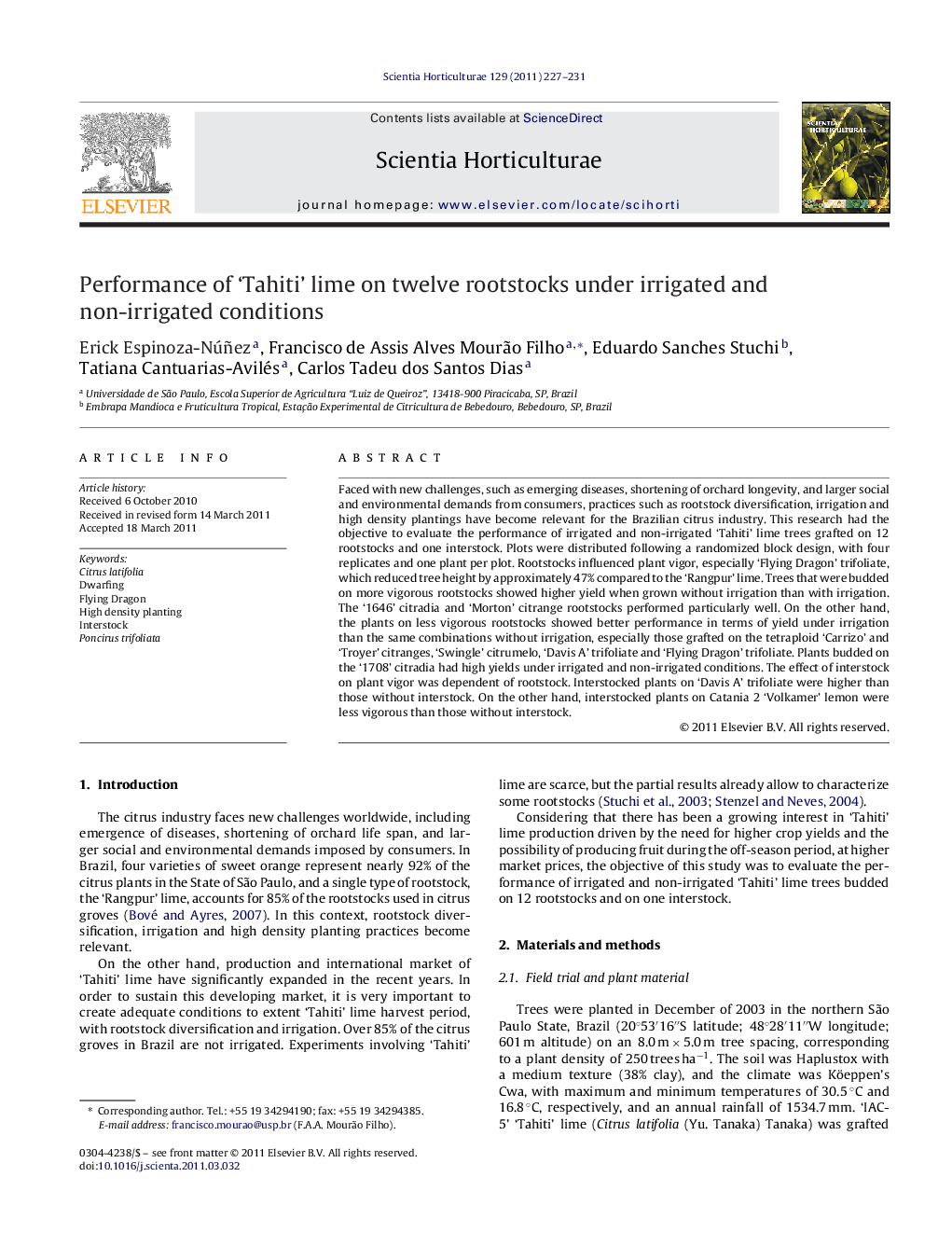| Article ID | Journal | Published Year | Pages | File Type |
|---|---|---|---|---|
| 4568407 | Scientia Horticulturae | 2011 | 5 Pages |
Faced with new challenges, such as emerging diseases, shortening of orchard longevity, and larger social and environmental demands from consumers, practices such as rootstock diversification, irrigation and high density plantings have become relevant for the Brazilian citrus industry. This research had the objective to evaluate the performance of irrigated and non-irrigated ‘Tahiti’ lime trees grafted on 12 rootstocks and one interstock. Plots were distributed following a randomized block design, with four replicates and one plant per plot. Rootstocks influenced plant vigor, especially ‘Flying Dragon’ trifoliate, which reduced tree height by approximately 47% compared to the ‘Rangpur’ lime. Trees that were budded on more vigorous rootstocks showed higher yield when grown without irrigation than with irrigation. The ‘1646’ citradia and ‘Morton’ citrange rootstocks performed particularly well. On the other hand, the plants on less vigorous rootstocks showed better performance in terms of yield under irrigation than the same combinations without irrigation, especially those grafted on the tetraploid ‘Carrizo’ and ‘Troyer’ citranges, ‘Swingle’ citrumelo, ‘Davis A’ trifoliate and ‘Flying Dragon’ trifoliate. Plants budded on the ‘1708’ citradia had high yields under irrigated and non-irrigated conditions. The effect of interstock on plant vigor was dependent of rootstock. Interstocked plants on ‘Davis A’ trifoliate were higher than those without interstock. On the other hand, interstocked plants on Catania 2 ‘Volkamer’ lemon were less vigorous than those without interstock.
► Invigorating rootstocks grown without irrigation induce high yield. ► Yield varies between irrigated and non-irrigated groves. ► Trifoliata ‘Flying Dragon’ is a suitable rootstock for high density ‘Tahiti’ lime.
